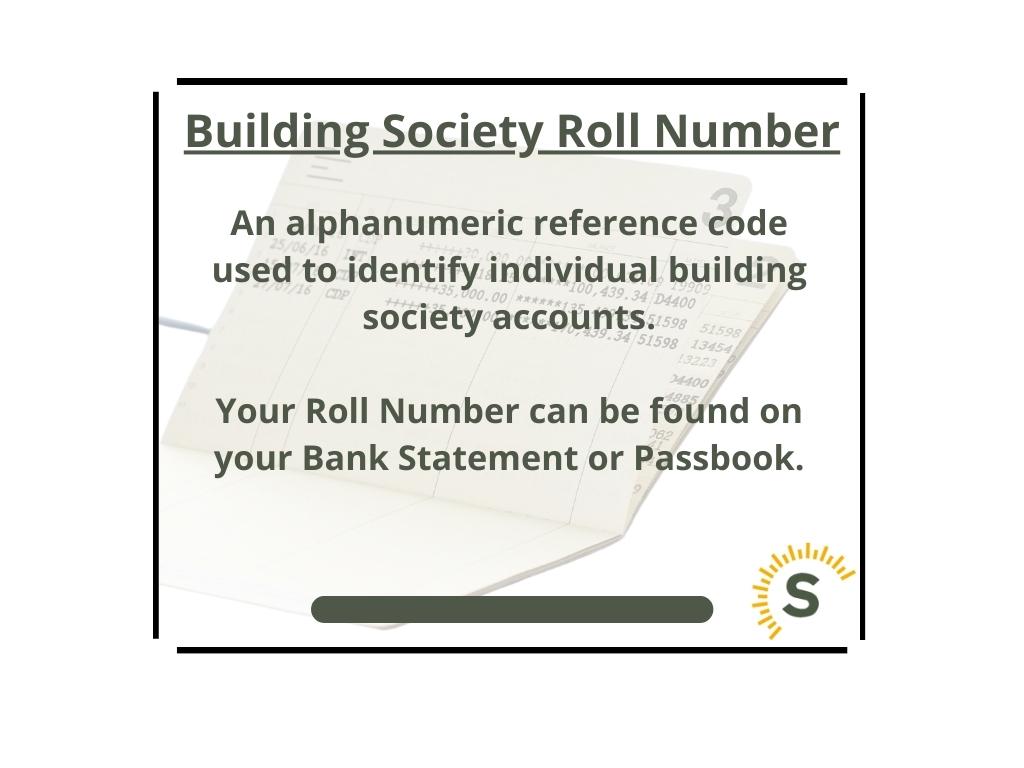
When it comes to managing your finances, it's important to have all the necessary details about your accounts. If you're a Nationwide customer, you may have come across the term "roll number" in the past.
In this comprehensive guide, we will delve into the topic of Nationwide roll numbers, their significance, and how they have evolved over time.
Whether you're a new customer or have been with Nationwide for years, understanding the roll number system is crucial for efficiently managing your accounts.
A roll number is a unique identifier that was traditionally used by building societies, including Nationwide. However, Nationwide has now transitioned away from roll numbers and adopted a different system for account identification.
Instead of using roll numbers, Nationwide customers now rely on their sort code and account number to access their accounts and carry out transactions. This change ensures a more streamlined and standardised approach across the banking industry.
The roll/reference number looks like this: 1234/123456789. You can find it: printed on the inside cover of your passbook.

Nationwide's decision to move away from roll numbers and embrace sort codes and account numbers aligns with industry-wide changes and banks such as Lloyds. Banks and building societies have gradually phased out roll numbers in favour of the simpler and more universally recognised sort code and account number system.
This transition has made it easier for customers to manage their accounts, as sort codes and account numbers are widely accepted and understood by financial institutions.
If you are a Nationwide customer who previously had a roll number, you can easily find your sort code and account number on your account statements or by accessing your account online.
These details are essential for performing various transactions, such as making payments, setting up direct debits, and transferring funds.
★★★★★ 4.5
Finding your sort code and account number depends on the type of account you have with Nationwide. Here are some common account types and where you can locate this information:
If you have a Nationwide current account, you can find your sort code and account number on your debit card, bank statements, or through the Nationwide Internet Bank. Simply log in to your Internet Bank account, and you'll be able to view your account details, including your sort code and account number.
For Nationwide savings accounts, your sort code and account number will be provided on your account statements or through the Internet Bank. If you have any questions or need assistance accessing this information, Nationwide's customer support team will be happy to help.
If you have a Nationwide mortgage, your sort code and account number can be found on your mortgage statements or by contacting Nationwide's mortgage support team. These details are important when making mortgage payments or managing your account online.
Nationwide credit card customers can find their sort code and account number on their credit card statements or by logging in to their online credit card account. If you require further assistance, Nationwide's credit card customer service team will be able to provide the necessary information.
The transition from roll numbers to sort codes and account numbers offers several advantages for both customers and Nationwide as a financial institution.
Here are some of the reasons behind Nationwide's decision to abandon the roll number system:
Standardisation: By adopting the widely recognised sort code and account number system, Nationwide aligns itself with industry standards, making it easier for customers to interact with other financial institutions.
Simplification: Sort codes and account numbers are simpler to understand and use compared to roll numbers, reducing confusion and potential errors in transactions.
Consistency: Moving away from roll numbers ensures consistency across the banking industry, making it easier for customers to switch between different financial institutions if needed.
Efficiency: The use of sort codes and account numbers allows for faster and more efficient processing of transactions, ensuring a smooth banking experience for Nationwide customers.
Keeping track of your account balance and transactions is an important part of managing your finances. Nationwide provides various methods for accessing this information, depending on your preferences and convenience.
Here are a few ways you can view your account balance and statement:
Internet Bank: The Nationwide Internet Bank offers a user-friendly interface that allows you to access your account balance and statement online. Simply log in to your account using your username and password, and you'll be able to view your recent transactions, check your balance, and download your statement.
Mobile Banking App: Nationwide's mobile banking app provides a convenient way to manage your accounts on the go. With the app, you can easily check your account balance, view transaction history, make payments, and transfer funds.
Telephone Banking: If you prefer a more traditional approach, you can access your account balance and transactions by calling Nationwide's telephone banking service. A customer service representative will guide you through the process and provide the information you need.
Nationwide understands that managing your finances can sometimes be overwhelming, and they are committed to providing excellent customer support to help you navigate any challenges you may encounter.
Whether you have questions about your account details, need assistance with online banking, or require guidance on financial matters, Nationwide's knowledgeable and friendly customer support team is there to assist you.
In conclusion, Nationwide has transitioned away from using roll numbers and now relies on the more universal system of sort codes and account numbers. This change brings standardisation, simplification, and consistency to the banking industry, making it easier for customers to manage their accounts.
Whether you have a current account, savings account, mortgage account, or credit card account with Nationwide, understanding your sort code and account number is essential for accessing your accounts and performing transactions.

Stuart is an expert in Property, Money, Banking & Finance, having worked in retail and investment banking for 10+ years before founding Sunny Avenue. Stuart has spent his career studying finance. He holds qualifications in financial studies, mortgage advice & practice, banking operations, dealing & financial markets, derivatives, securities & investments.





Our website offers information about financial products such as investing, savings, equity release, mortgages, and insurance. None of the information on Sunny Avenue constitutes personal advice. Sunny Avenue does not offer any of these services directly and we only act as a directory service to connect you to the experts. If you require further information to proceed you will need to request advice, for example from the financial advisers listed. If you decide to invest, read the important investment notes provided first, decide how to proceed on your own basis, and remember that investments can go up and down in value, so you could get back less than you put in.
Think carefully before securing debts against your home. A mortgage is a loan secured on your home, which you could lose if you do not keep up your mortgage payments. Check that any mortgage will meet your needs if you want to move or sell your home or you want your family to inherit it. If you are in any doubt, seek independent advice.